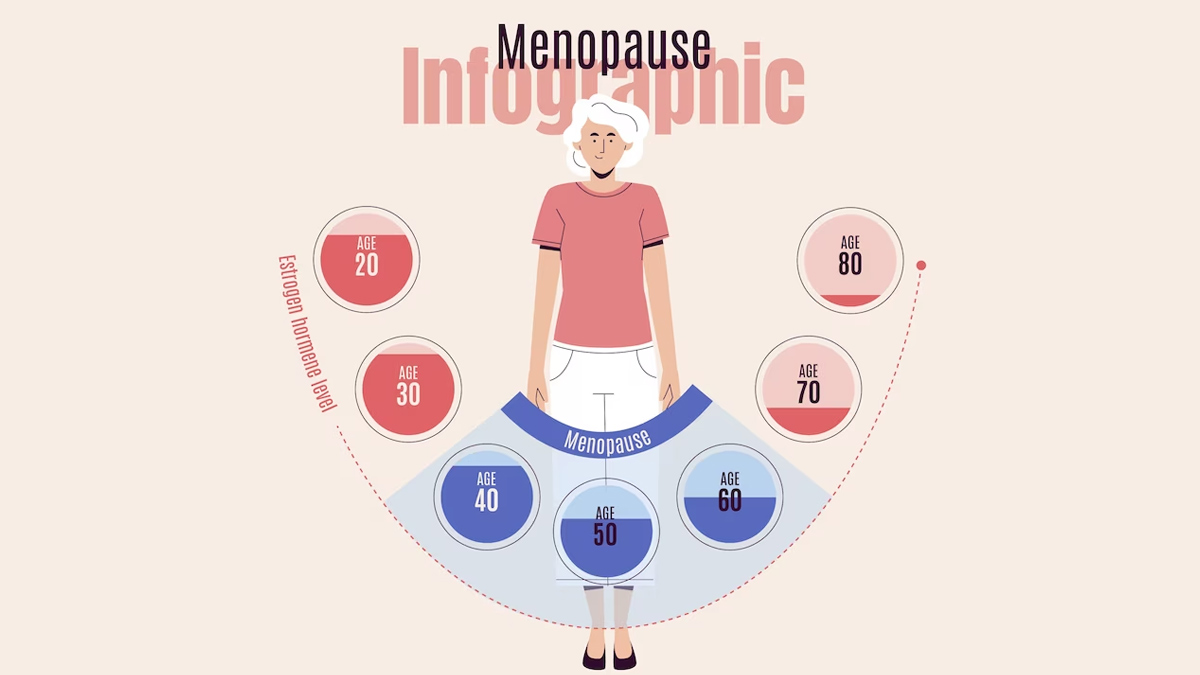
Menopause is a time in a woman's life, typically in their late 40s or early 50s, where they experience the end of their reproductive years. It is characterised by the end of their menstrual periods due to a decline in oestrogen and progesterone production. Women report experiencing symptoms, such as hot flashes, vaginal dryness, chills, night sweats, sleep issues, and mood changes. In addition, menopause is also said to increase a woman's risk of cardiovascular issues. In fact, the theme for this year's World Menopause Day 2023 is "Cardiovascular Disease," which aims to educate people around how reproductive health also impacts heart health.
Table of Content:-
Speaking with the OnlyMyHealth team, Dr Tom Devasia, Professor-Department of Cardiology, Kasturba Medical College, MAHE, Manipal, discusses why women may be more at risk of cardiovascular problems during menopause.
Also Read: World Menopause Day: 7 Tips To Take Care Of Breast Health During Menopause
Cardiovascular Disease Risk During Menopause

Most women between the ages of 45 and 55 years experience menopause, which is a natural part of biological ageing, according to the World Health Organization (WHO).
However, during this phase, body composition and cardiovascular risk in women can also be affected, the global health body added.
It said, "Women’s advantage over men in terms of cardiovascular disease gradually disappears with the significant decline in oestrogen levels after menopause."
A 2014 study published in the Journal of Clinical and Diagnostic Research found that Coronary Artery Disease (CAD), hypertension, abnormal Body Mass Index (BMI) and abnormal Waist Hip Ratio (WHR) were significantly higher in the postmenopausal group as compared to the premenopausal group.
"The post menopausal women had significantly higher prevalence of abnormal lipid profiles as compared to their premenopausal counterparts. The postmenopausal women with a normal lipid profile also had increased prevalence of CAD and SAHT, which emphasizes the non-lipid cardiovascular benefits of estrogen," the study read.
Why Cardiovascular Disease Risk Increases During Menopause

Dr Devasia said, “The risk of cardiovascular disease tends to increase in menopausal women due to various physiological changes that occur during this life stage.” Five most common reasons include:
- Decline in the production of oestrogen, a hormone that has protective effects on the cardiovascular system
- Unfavourable changes in the lipid profile, including increase in Low Density Lipoprotein (LDL) cholesterol and decrease in High Density Lipoprotein (HDL) cholesterol
- Increased blood pressure, which is a major risk factor for cardiovascular disease; hormonal changes and age-related vascular changes are thought to contribute to hypertension in menopausal women
- Increase in body fat, particularly visceral fat, associated with an elevated risk of cardiovascular disease
- Increased levels of inflammation, and the development of atherosclerosis, caused by the buildup of fats, cholesterol and other substances in and on the artery walls
Also Read: World Menopause Day 2023: Experts Explain Menopause In Transgender And Non-Binary Individuals
Preventive Care

Preventing cardiovascular disease risk in menopausal women involves a combination of lifestyle changes and, in some cases, medical interventions. Some of the strategies include:
- Consuming a heart-healthy diet rich in fruits, vegetables, whole grains, and lean proteins
- Limiting saturated and trans fats, as well as dietary cholesterol
- Engaging in regular aerobic exercises, such as brisk walking, swimming, or cycling, for at least 150 minutes per week
- Avoid weight gain during and after menopause by managing calorie intake and staying physically active
- Quitting smoking, which contributes to the development of atherosclerosis and raises blood pressure
- Practising stress-reduction techniques, such as meditation, yoga, or mindfulness
- Regularly checking and managing blood pressure levels
“Additionally, medical professionals may advise hormone therapy or other medications as necessary to control particular risk factors and shield menopausal women from cardiovascular disease. Effectively addressing and managing these concerns requires routine examinations and consultations with doctors,” advised Dr Devasia.
Also watch this video
How we keep this article up to date:
We work with experts and keep a close eye on the latest in health and wellness. Whenever there is a new research or helpful information, we update our articles with accurate and useful advice.
Current Version